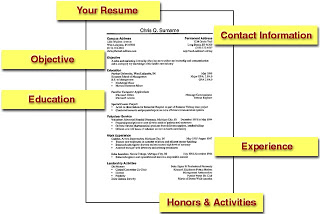 When you apply for a job, employers ask for two important documents:
When you apply for a job, employers ask for two important documents:1.A CV or resume
2.A covering letter
This month we look at your CV. Next month we will look at your covering letter.
Why you need a good CVYour CV is a summary of your professional and academic life. It usually concentrates on your personal details, education and work experience.
Your CV's job is very simple: to get you a job interview. To do this, your CV must be:
?clear
?well-organised
?easy to read
?concise
?relevant to the job offered
Content
You should include everything that is relevant to your employment or career and nothing that is irrelevant. There are usually 5 general headings of information to include:
a.Personal details: name, address, email and telephone number (and sometimes nationality, age/date of birth and marital status)
b.Objective: a headline that summarises the job you want
c.Work experience: your employment in reverse chronological order
d.Education: details of secondary and university education
e.Personal interests: showing that you are a well-balanced person with an interesting life outside work
Sometimes, you may need to give additional information for a particular job or because you have special qualifications.
FormatIn the English-speaking world your CV should be word-processed, for several reasons:
?a hand-written CV is unprofessional
?some recruitment agencies and employers like to scan CVs electronically
?it will be easier for you to update and modify your CV later
It is usually best to limit your CV to a maximum of 2 pages. You can usually put everything you need on 1 or 2 pages.
DO NOT USE ALL CAPITALS LIKE THIS!!! CAPITALS ARE VERY DIFFICULT TO READ AND CAN BE CONSIDERED IMPOLITE IN THE ENGLISH-SPEAKING WORLD.
There are basically 2 standard paper sizes, depending on your part of the world:
?A4 (297 x 210 millimetres) - as used in Europe
?Letter Size (8 1/2 x 11 inches) - as used in the United States
Vocabulary
Your language should be simple and clear.
Use short words and short sentences.
Do not use technical vocabulary (unless you are sure that the reader will understand it).
Talk about concrete facts ("I increased sales by 50%"), not abstract ideas ("I was responsible for a considerable improvement in our market position").
Use verbs in the active voice, not passive voice. Which of these two sentences do you think is the more powerful?
?active: "I organised this exhibition."
?passive: "This exhibition was organised by me."
Use "power words". The most powerful words are verbs. And the most powerful verbs are action verbs. (Action verbs describe dynamic activity, not state).
Here, for example, are some typical power words for Management and Sales skills:
?Management skills: assign, attain, chair, co-ordinate, delegate, direct, execute, organise, oversee, plan, recommend, review, strengthen, supervise, train
?Sales skills: sell, convert, close, deal, persuade, highlight, satisfy, win over, sign
So you should use lots of action verbs matched to your skills, and use them in the active form, not the passive form.
Source: http://www.englishclub.com/
